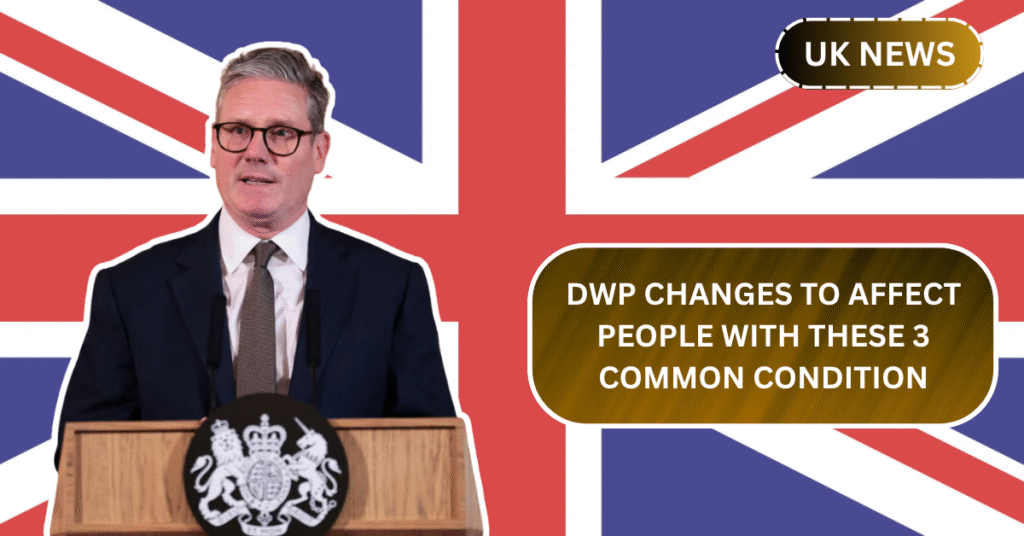The Department for Work and Pensions (DWP) has recently introduced changes that will have a significant impact on individuals living with specific health conditions. These new adjustments are expected to hit some of the most vulnerable people in society, particularly those dealing with long-term conditions. In this article, we’ll break down the changes and what they mean for those who may be affected.
What Are the Key Changes to the DWP Benefits?
This Article Includes
The DWP has announced a series of changes that are aimed at streamlining the benefits system. While these changes are intended to reduce the burden on taxpayers, they have left many individuals feeling uncertain about their financial future.
For people living with chronic conditions, such as mental health issues, physical disabilities, or long-term illness, the changes could be devastating. Many are now worried about losing financial support that they have relied on for years. With some of these conditions worsening over time, the timing couldn’t be worse for those already struggling.
The Three Most Affected Conditions
Three common conditions are expected to bear the brunt of these changes. Let’s take a closer look at each one:
1.Mental Health Issues
For individuals suffering from mental health conditions such as depression, anxiety, or bipolar disorder, the changes are particularly alarming. The DWP has been re-evaluating how they assess the impact of mental health issues on an individual’s ability to work. While it’s true that some people living with mental health conditions are able to return to work or work part-time, others face significant challenges that prevent them from leading a normal life.
The new changes could see many people with mental health issues having their benefits reduced or even cut entirely. This will make it even harder for those who rely on these payments to afford treatment or maintain their daily living expenses.
2.Physical Disabilities
People with physical disabilities have long faced barriers in the workplace. Some are unable to perform physical tasks due to their condition, while others may need adaptive technology or support to complete their jobs. The DWP changes may not fully account for the complexities of physical disabilities, potentially leading to fewer individuals qualifying for support.
For many people with physical disabilities, the added pressure of financial strain could worsen their condition. Access to medical treatments, mobility aids, and essential daily care may also become harder to obtain, further diminishing their quality of life.
3.Chronic Illnesses
Chronic illnesses such as diabetes, heart disease, or autoimmune disorders require ongoing treatment and management. Unfortunately, these conditions often worsen over time, meaning people living with them face a constantly shifting balance between maintaining work and managing their health.
With the DWP changes in place, many individuals with chronic conditions might find that their support is reduced or eliminated. This could mean an inability to afford necessary medication, hospital visits, or even basic living expenses. In turn, their health may deteriorate, and they might struggle even more to stay afloat financially.
How Will These Changes Impact People’s Lives?
The reality of these changes is that they will cause significant distress for many people who rely on government assistance to live comfortably. Here’s a breakdown of the potential impacts:
- Increased Financial Strain: The most obvious effect will be financial hardship. Without enough support, many individuals will struggle to cover basic expenses such as rent, utilities, food, and medical care. This may result in increased levels of poverty among some of the most vulnerable members of society.
- Declining Mental Health: The stress of losing financial support will undoubtedly take a toll on the mental health of many individuals. For those already dealing with anxiety, depression, or other conditions, the added financial stress may exacerbate their symptoms, creating a vicious cycle.
- Limited Access to Healthcare: People who rely on benefits to pay for their medical treatment or medications will now find themselves in a difficult situation. With fewer resources, some might even skip necessary treatments, which could lead to worsened health conditions and further complications in the future.
- Increased Reliance on Charitable Support: As government assistance dwindles, more individuals may turn to charities and community organizations for help. While these organizations can provide some relief, they can’t always meet the high demand for support. This can result in frustration and despair for people who have no other options.
What Can You Do if You’re Affected?
If you or someone you know is affected by these changes, there are a few steps you can take to protect your financial security:
- Stay Informed: Keep up to date with any new announcements or guidance from the DWP. Changes to the system could still be happening, and staying informed can help you understand your options.
- Reach Out for Help: Don’t be afraid to contact local support services, charities, or government agencies for advice. They may be able to offer financial help, legal guidance, or emotional support to help you navigate the new system.
- Consider Alternative Sources of Income: If you’re able to, consider exploring other sources of income. This might include part-time work, freelance opportunities, or even online businesses. While these options might not work for everyone, they could provide additional stability.
- Fight for Your Rights: If you feel that the changes to the DWP benefits system are unfair, it’s important to stand up for your rights. Join advocacy groups, write to your local MPs, or get involved in petitions. Many people are already fighting for a fairer system, and your voice could make a difference.
Conclusion
The recent DWP changes are causing major concern for people with long-term health conditions. For those with mental health issues, physical disabilities, or chronic illnesses, the cuts to benefits can have life-altering effects. While it’s vital to understand the changes and how they will impact you, it’s equally important to remember that there are ways to cope with the new challenges and fight for your rights.




